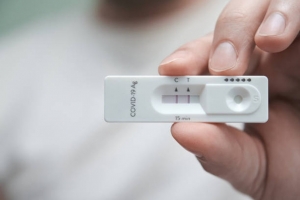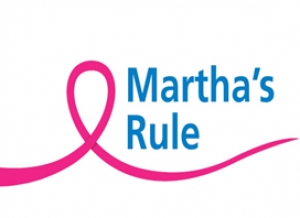Pharmacies to Offer Free NHS Flu Sprays for Toddlers
From 1st October, thousands of pharmacies across England will for the first time provide free NHS flu nasal sprays to young children. Until now, the vaccine was only available for two and three-year-olds at GP surgeries. Around 4,000 pharmacies are taking part in the rollout, with both pre-booked slots and walk-in appointments available. The initiative is aimed at making vaccinations more accessible for families and boosting uptake ahead of winter.
Health officials say protecting toddlers is a key part of stopping flu from spreading more widely. NHS figures show last winter flu accounted for more than 300,000 hospital bed days — nearly twice as many as the year before. By vaccinating young children, the risk of them falling seriously ill or passing the virus to older relatives and other vulnerable groups is reduced.
The flu vaccine is also offered free of charge to a range of groups, including people aged 65 and over, those with long-term health conditions, pregnant women, carers, and frontline health and care staff. In areas with particularly low uptake, additional measures such as vaccinations in nurseries and mobile vaccine buses will be deployed to reach more people.
Health leaders say pharmacies offer a convenient option for families who might struggle to attend GP appointments. With many based in high streets and supermarkets, parents will now be able to protect their children quickly and locally. Pharmacy leaders have welcomed the move, describing it as a practical way to improve vaccination rates and ease pressure on other NHS services.
Gene Therapy Breakthrough Brings Hope for Huntington’s Disease
Doctors in London have achieved a major milestone in treating Huntington’s disease, a rare but devastating genetic disorder that destroys brain cells. For the first time, patients given a new form of gene therapy saw their condition slow by an astonishing 75%. Researchers say this could mean decades of better-quality life for people who otherwise face a rapid decline once symptoms appear in their 30s or 40s.
The treatment involves a single dose of genetic medicine delivered during an intensive 12–18-hour brain surgery. A modified virus carries a piece of DNA into targeted brain regions, teaching neurons to produce microRNA that blocks the harmful protein responsible for Huntington’s. Early trial data not only showed dramatic slowing of symptoms but also signs that the therapy helps protect brain cells from dying.
Families affected by Huntington’s are calling the results life-changing. Jack May-Davis, who inherited the faulty gene from his late father, said the news left him “overwhelmed” with optimism about his future. Patients in the trial, some of whom were expected to need wheelchairs, are still walking years later. Doctors describe the outcome as “spectacular” and beyond their expectations.
The therapy is expected to be costly and will not be suitable for all patients due to the complexity of the surgery. However, researchers say this is only the beginning, with hopes that future trials could even prevent the disease from developing in people carrying the gene. If approved, the treatment could become available in the U.S. as early as 2026.
AI Tool Forecasts Future Health Risks
Scientists have unveiled an artificial intelligence system capable of predicting an individual’s risk of developing health problems years in advance. The model, known as Delphi-2M, can assess the likelihood of more than 1,200 conditions by analysing patterns in medical records, much like a weather forecast gives probabilities of rain. Researchers believe this could transform prevention and healthcare planning by identifying high-risk patients and forecasting future hospital demand.
Unlike predicting the exact timing of an event, Delphi-2M calculates the probability of diseases such as type 2 diabetes, heart attacks, and sepsis. The tool was trained using anonymous medical data from over 400,000 participants in the UK Biobank project and later tested with 1.9 million Danish records. Results suggest the system is accurate, with predictions closely matching real-world outcomes.
The researchers emphasise the model is not yet ready for clinical use but could one day guide interventions, from prescribing preventative medicines to giving tailored lifestyle advice. For example, people at higher risk of liver conditions could benefit more from reducing alcohol than the general population. It could also help policymakers anticipate healthcare needs in specific regions, such as estimating the number of heart attacks in a city years ahead.
Published in Nature, the study highlights both the promise and limitations of the technology. The dataset used mainly covered adults aged 40 to 70, raising concerns over bias, while further refinement is needed with genetic, imaging and blood data. Still, experts say Delphi-2M marks the beginning of a new era of predictive healthcare that could eventually personalise treatment and improve resource planning.
New Covid Strain ‘Stratus’ on the Rise
A fresh Covid-19 variant, known as Stratus, is now spreading rapidly across the UK and Ireland, with health officials monitoring its impact closely. The strain has two forms, XFG and XFG.3, with the latter already accounting for around 40% of infections in England earlier this summer. In Ireland, the variant has grown to dominate over three-quarters of new cases in just six weeks.
The World Health Organisation has placed Stratus on its watchlist as a “variant under monitoring.” While it does not appear to cause more severe illness than earlier strains, experts warn it is more contagious, making it easier for the virus to circulate, particularly as schools return and seasonal colds increase.
One of the most distinctive early signs is hoarseness or a raspy voice, a symptom that could easily be overlooked. Doctors have also reported congestion, sore throats, stomach upset and tiredness among patients. Infectious disease specialists highlight that Stratus presents a broader range of symptoms than previous variants and is more likely to cause throat-related complaints, especially in people who missed last year’s booster jab.
Despite this, UK guidance on Covid symptoms and testing remains unchanged. The NHS continues to advise those who test positive to stay home where possible, though free test kits are no longer widely available. Vaccines remain the primary defence, and officials urge people to stay alert to both the classic symptoms, such as fever and cough, and the subtler warning signs linked with Stratus.
Alzheimer’s Blood Test Trial Launches Across the UK
More than 1,000 people with suspected dementia are set to take part in a UK trial of a pioneering blood test that could transform the way Alzheimer’s disease is diagnosed. The test, which detects biomarkers linked to abnormal proteins in the brain, will be used alongside traditional cognitive assessments that often fail to identify the disease in its early stages. Scientists at University College London (UCL), who are leading the study, believe the test could raise diagnostic accuracy from 70% to over 90%.
Recruitment has already begun at a memory clinic in Essex, with 19 further NHS centres expected to join. The test measures a marker called p-tau217, which reflects the build-up of amyloid and tau proteins – the key biological hallmarks of Alzheimer’s. Unlike costly brain scans or invasive lumbar punctures, which only a small minority of patients ever undergo, the blood test offers a cheaper and simpler option at around £100. Researchers will also assess whether providing results more quickly improves decision-making for both doctors and patients.
The trial, known as ADAPT, is supported by Alzheimer’s Research UK, the Alzheimer’s Society and funding from the People’s Postcode Lottery. Professor Jonathan Schott of UCL described it as a “critical step” towards revolutionising dementia diagnosis, especially as new treatments for early-stage Alzheimer’s edge closer to approval.
For families affected, the test could be life-changing. Steven Pidwill, whose wife Rachel was diagnosed nearly a decade ago, said a reliable blood test would be a “gamechanger”, helping people view Alzheimer’s as a manageable condition rather than a taboo. Results from the study are expected within three years.
Childhood Obesity Overtakes Underweight
For the first time, more children worldwide are living with obesity than being underweight, according to new Unicef research. The study shows nearly one in ten children and adolescents aged five to nineteen – around 188 million globally – are now obese. Researchers link this to a growing reliance on cheap, ultra-processed foods high in sugar, fat, and salt, which are replacing traditional, healthier diets.
While undernutrition, particularly stunting and wasting in under-fives, remains a challenge in many low and middle-income countries, the balance is shifting. Since 2000, underweight prevalence in older children has dropped from nearly 13% to 9.2%. In the same period, obesity has tripled from 3% to 9.4%. Today, around one in five school-aged children are overweight, amounting to an estimated 391 million worldwide.
The impact is felt across regions. Obesity rates surpass underweight in almost every part of the globe, with the exception of South Asia and sub-Saharan Africa. Small Pacific Island nations face the steepest crisis, with obesity rates above 30% in some. Wealthier nations are also heavily affected, with more than a fifth of children classed as obese in countries such as the US, Chile, and the UAE.
Unicef warns of both health and economic fallout if action is not taken. By 2035, the global financial burden of obesity could top US$4 trillion annually. The agency is urging governments to act decisively – from taxing unhealthy food and drink to banning ultra-processed products from schools, reformulating products, and ensuring food policy remains free from industry interference.
Government Plans Energy Drink Ban for Under-16s
Ministers have announced proposals to prevent anyone under 16 in England from buying energy drinks such as Monster, Red Bull and Prime. The restriction, which would cover shops, restaurants, cafes, vending machines and online sales, follows mounting concern from parents and teachers about the health risks these drinks pose to young people. Although many supermarkets already enforce voluntary age limits, surveys suggest up to a third of children in the UK still consume them weekly.
Energy drinks often contain extremely high levels of caffeine – in some cases more than double the amount found in two cups of coffee. Experts warn that over-consumption can lead to sleep problems, headaches and, in rare cases, dangerous heart rhythms or seizures. The sugary varieties also raise risks of tooth decay and obesity. The Association of UK Dieticians has urged families to be cautious, while paediatric specialists argue the drinks have “no place” in children’s diets.
Health Secretary Wes Streeting said the move was essential to protect children’s wellbeing, stressing that the government had been urged to act by schools, parents and young people themselves. A 12-week consultation will now gather views from medical professionals, retailers and the public before legislation is finalised. Streeting indicated the ban would be introduced well before the end of the current parliament.
Campaigners highlight that young people are especially vulnerable, with energy drinks marketed through bright packaging, influencers and flavours designed to appeal to teenagers. Critics in the soft drinks industry argue that manufacturers already impose voluntary restrictions, but health leaders insist compulsory regulation is necessary to curb long-term harm. Scotland, Wales and Northern Ireland are also weighing similar measures.
Martha’s Rule to be Rolled Out Nationwide in England
A patient safety initiative known as Martha’s Rule will now be introduced across all acute hospitals in England. The scheme, designed to give families a direct route to request urgent second opinions, was created in memory of 13-year-old Martha Mills, who died at King’s College Hospital in London after her parents’ concerns went unheard.
Since its pilot launch in April 2024, the dedicated helpline has logged almost 5,000 calls. NHS England figures show the service has already had a major impact, with 241 cases judged to have led to potentially life-saving changes. In many instances, calls resulted in new treatments, quicker investigations or the resolution of communication breakdowns between staff and relatives.
Martha’s mother, journalist Merope Mills, marked what would have been her daughter’s 18th birthday by welcoming the expansion. She described the data as proof of both the scheme’s effectiveness and the need for a “more equal doctor–patient relationship.” However, she emphasised the importance of extending the system beyond England, particularly in maternity services, where failures to listen to families have been repeatedly highlighted.
Health Secretary Wes Streeting praised the determination of Martha’s family and said he would share results with governments in Scotland, Wales and Northern Ireland. While Wales is developing a similar programme, and Scotland is piloting local schemes, Northern Ireland has not yet committed to introducing the initiative. A full evaluation of Martha’s Rule is underway, with future plans to consider its use in mental health, community care and long-term treatment settings.











